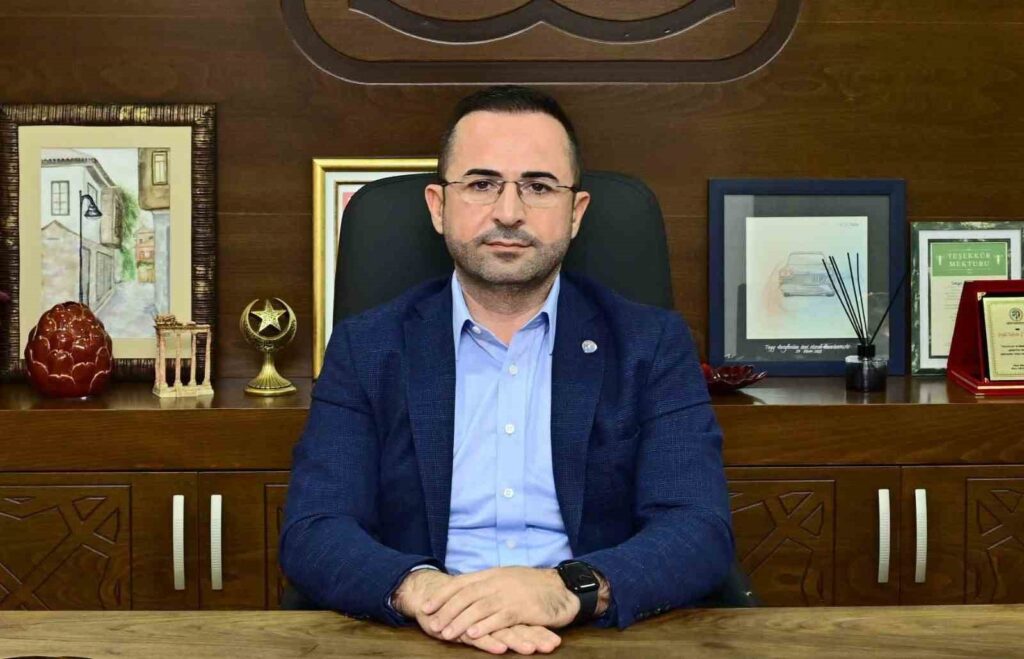President Güngör: “Inflation adjustment should be relaxed”
MATSO President Seydi Tahsin Güngör stated that the inflation adjustment negatively affected the business world, emphasizing that it should be reviewed and regulated to be made more flexible. Manavgat Chamber of Commerce and Industry (MATSO) President Seydi Tahsin Güngör …

MATSO President Seydi Tahsin Güngör stated that the inflation adjustment negatively affects the business world and that it needs to be reviewed and adjusted to be more flexible.
Manavgat Chamber of Commerce and Industry (MATSO) President Seydi Tahsin Güngör made a statement regarding the inflation adjustment implementation. In his statement, President Güngör emphasized that the inflation adjustment negatively impacts the business world and could impose an additional tax burden on ongoing investments, leading to financial difficulties. He stated that if companies have no other income, the tax resulting from the investment and arising from inflation accounting should not exist. President Güngör stressed that the basis for inflation accounting should be regulated without straying from reality and without imposing additional taxes, especially highlighting that businesses that create employment and added value should be excluded from this scope. He said, “It is essential for the regulation to be arranged in a way that has no additional tax effect, particularly to exclude businesses that will create employment and added value. Applying inflation accounting under a tax that is essentially an asset valuation tax before investments, which can only yield returns in the medium and long term, will leave SMEs facing a tax burden based on profits that do not arise from their activities.”
“Tax assessment without generating income will lead to injustice.”
President Güngör pointed out that imposing tax assessments on firms that have not yet generated sales revenue and have invested with external resources due to inflation assessments would lead to injustice. He emphasized that when companies have no income, it becomes difficult for them to pay taxes and that applying inflation adjustment differences in SMEs’ temporary tax declarations in a way that would have tax implications would negatively affect these firms.
President Güngör stated that it is necessary to prevent tax assessments on companies that have invested but have not yet generated sales revenue, saying, “Otherwise, investments may suffer significant damage, and companies that plan to invest may postpone their projects. In a period where we need new investments and employment the most, penalizing investments will negatively impact economic growth and employment.” Güngör expressed the importance of tax policies being determined according to the real economic situation.
Stating that price movements in the tourism sector negatively affect the sector regarding inflation accounting, President Güngör emphasized that the tourism sector, which is in a difficult situation as input costs rise every day, will be adversely affected by this situation. He explained that tourism is the most important source of income for the city’s economy, saying, “The dominant sector of our city is our smokeless industry, tourism. The negative impact on the tourism sector adversely affects all sectors in the region.” President Güngör noted that businesses are forced to pay tax on money they have not yet earned due to inflation adjustments, indicating that there is intense demand from members in the sector for flexibility or postponement regarding this issue.
“We have requested the deferral and re-regulation of inflation adjustments.”
President Güngör stated that the application of inflation adjustments should be given time for correct and fair taxation, adding that they have contacted the relevant institutions through TOBB to prevent new tax burdens on firms by postponing and re-regulating the inflation adjustment implementation.







